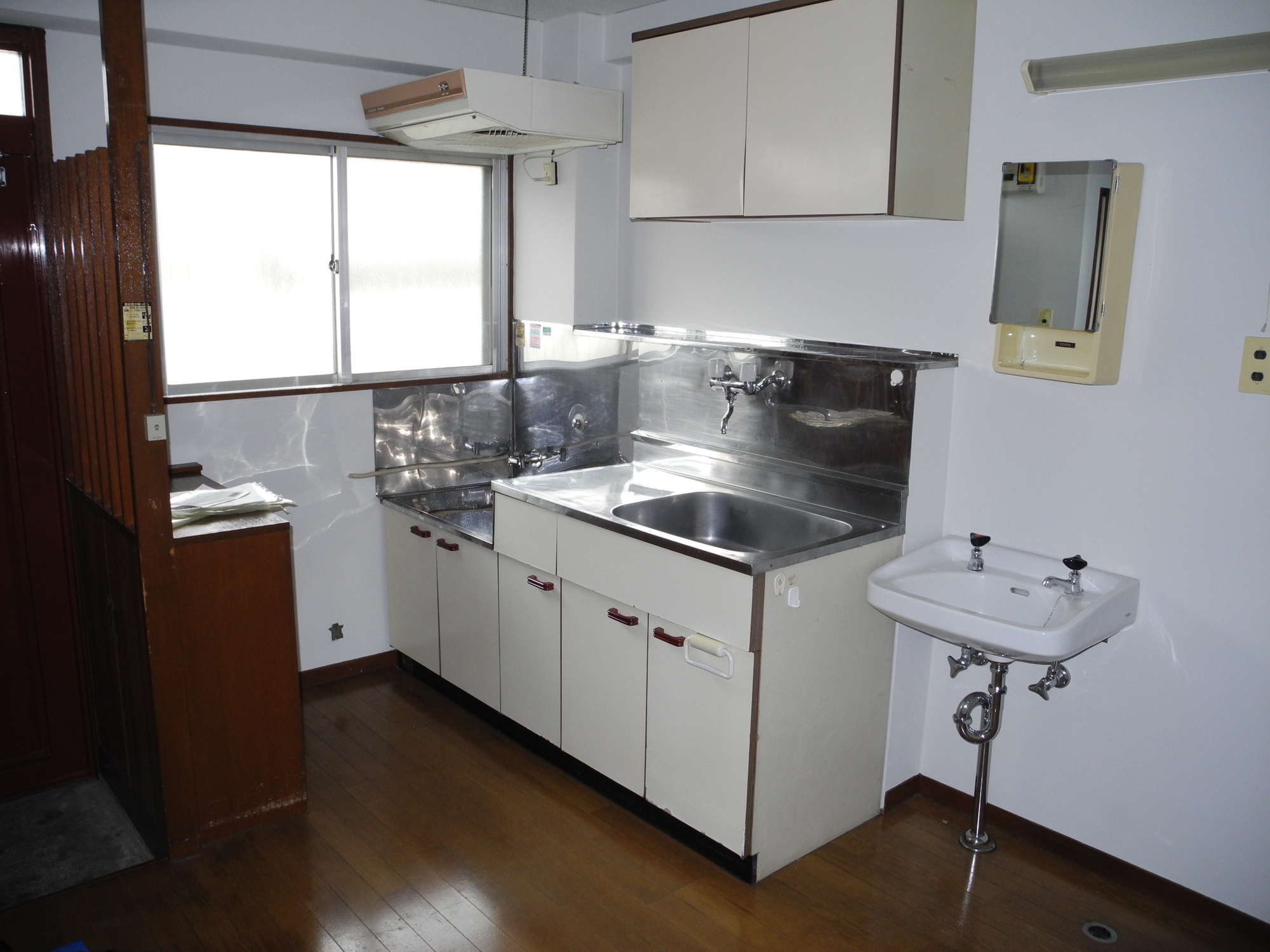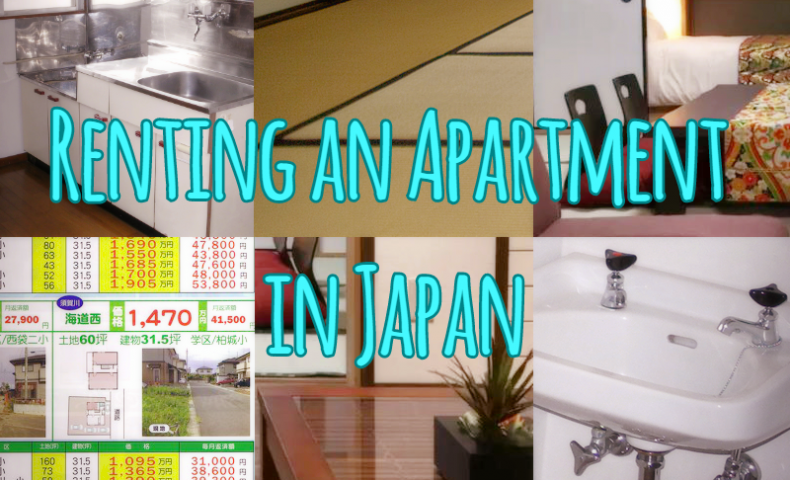Though I have lived in Japan on and off for several years now, the renting process never ceases to leave me feeling exhausted, like I have just completed the Ironman triathlon. The process is long, rigorous, and requires you to be prepared for situations that you might never encounter in your home country. While undergoing the rental process for the nth time, I started thinking about all the things that someone doing this for the first time should be aware of; and so today, I present to you a list of points for when you want to rent an apartment in Japan.

Just one example of notices you might see in the window of a real estate storefront. (Photo credit: photozou.jp)
Contents
Things You Need Beforehand
Before you even plan on moving to Japan, you need to do a couple things to help in the renting journey:
Language
Some people will tell you differently, that you don’t need to know any Japanese to get an apartment; but trust me on this, the world gets infinitely easier if you can at least communicate with the realtor. While you can go to an English-speaking group or hire an interpreter, this will definitely narrow your options.
Landlords rarely accept people on their own, so you have to go through a real estate group. Most of the agents don’t speak any English. Secondly, speaking Japanese is more practical. You can understand the contract, talk about what you are looking for, and even get extra points of favor when you are introduced to the landlord.
If you don’t speak Japanese, then landlord might be less inclined to accept you.
Furthermore, when you actually move into said apartment, you may have to set up utilities by yourself. Surprise! Most utility companies do not have English representatives or websites.
Search Area and Conditions
If you are thinking about moving to Japan, you should have two locations in mind: the place where you are going to be working, and the place you want to live. For example, if the company that is sponsoring your visa is located in Koto-ku (eastern Tokyo), you probably don’t want to be in Fuchu-shi, because the commute time is crazy. In short, do your research. Know which lines connect you to where you need to go, how long you will be traveling, what is in the surrounding environment of your desired home, and the demographics of the ward or city.
The other thing you need to consider is whether or not you have or want pets, whether or not your play an instrument, the type of toilet/bathing arrangement you want, and what kind of flooring you want.


Tatami or wood floor? Small or big kitchen? The choice is yours! (Photo credit: Wikipedia Commons)
True story: this time around, I was considering adopting a cat or dog to live with me. I went to a real estate agent, and they asked me what the main condition was. I told them that I really want a place that allows pets, and the agent who was taking care of my case looks up at the ceiling, “So that’s it? You want a pet. Do you know how hard you just made it for yourself?”
He went on to search the internet database. Originally, without adding ペット相談 (pet consultation) to the requirements, there were over 40,000 listings that met all other conditions. Add being pet-friendly to the terms, and that 40,000+ amount dropped to around 1,000. Then the agent added where I wanted to live, bringing the grand total of potential apartments to 6.
Terminology
When I first got an apartment in Japan, I swear my Japanese lexicon advanced by years. Do you know the difference between a guarantor company and an emergency contact? Do you know what key money implies? What about the various styles of cleaning you might be paying for? Even if you rented apartments or homes before in your home country, there are certainly going to be some surprising institutions set up in Japan that will throw you if you aren’t already familiar with them.
Another set of terms you might be unfamiliar with would be layout abbreviations. When I first starting searching, I didn’t know the difference between 1R, 1K, and LDK. Basically, 1R is one room, or a small studio style. 1K features a compact kitchen space. 1LDK basically means 1 bedroom, 1 living space, 1 dining space and a kitchen.
Money
You need to be prepared to spend a lot of money for your move. Sure, relocation is never cheap, regardless of where you are, but the typical move-in cost in Japan (especially Tokyo) is quite exponential. Hypothetically speaking, let’s say you find an apartment for JPY 60,000.
Now, you won’t just be paying that first month’s rent and a security deposit. Here is a breakdown of the potential costs tacked onto the initial fee:
- First month’s rent: ¥60,000
- Security deposit: ¥60,000-¥120,000
- Key money: ¥60,000-¥120,000 (usually 1-2 months rent)
- Agent commission (usually a percentage of the rent plus tax): ¥34,800
- Guarantor company fee (usually a percentage of rent plus tax): ¥25,800
- Maintenance fee: ¥5,000
- Renter/Fire insurance fee: ¥20,000 (for 2 year policy)
- Lock exchange fee: ¥12,000
With just this alone, you could wind up spending upwards of ¥217,600! Now what if the guarantor company charges more? What if you need other forms of cleaning? Two months of rent for a security deposit instead of one? Will you have money to purchase appliances? Sometimes, apartments don’t come with washing machines and refrigerators, so you need to even budget for that.
Things You Need When Applying
Let’s say you are now in Japan. You have your visa or residence card, and you are ready to settle down. Here is where the process gets a bit more hectic. You are going to be faced with conditions that might not seem fair to you. One of those happens to deal with the apartment itself, such as rules and conditions, like the pet-friendly restrictions mentioned earlier.
The other is how the landlord and realtor sees you–as in, whether or not you are going to be discriminated against. It’s no joke. I can’t tell you how many times I have been turned down because, despite being fluent in Japanese and working, I was rejected for being foreign. Real estate agents say it too, that many landlords have had bad experiences with gaijin, and so they refuse anyone.
Since you’re a foreigner, the things you need when applying are more extraneous than a Japanese. Here is what I’ve been asked for in the past:
- Residence card (在留カード)
- Emergency contact (緊急連絡先) — this had to be a Japanese person, because the guarantor company didn’t speak English;
- A cell phone number — if you don’t have a phone, the guarantor company and realtor cannot contact you, which is not only inconvenient but a nullifying issue on the contract;
- An address — this can be your parents’ address in your home country, for example, or the even the place you are currently located;
- Proof of employment and health insurance — this isn’t necessary if you just started working;
- Guarantor company (保証会社) — you usually don’t have to find this yourself, since the real estate agent will have a group already;
- About double the amount of your rent in your bank account, and proof of said bank account
- A resume (履歴書) or school transcripts or both.
Every real estate agent has their own terms and conditions. The key is finding the group that works best for you and who is willing to be more flexible in their search. Look for friendliness and open mindedness, as well as additional perks like discounts, low commission rates, and high satisfaction ratings. Also, be sure to do your research and pick up some Japanese real estate terminology. From there, all you have to do is scour internet listings and storefronts to find your dream apartment in Tokyo!
By Valerie Taylor
東京都在住。太陽光発電に関する企業で通訳・翻訳、 国際関係業務を勤めている。 また、ダンスと忍術を訓練している。
?Read more TalentHub blogs: https://talenthub.jp/blog/









